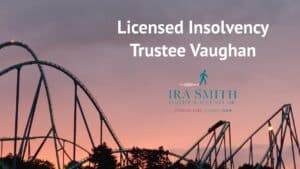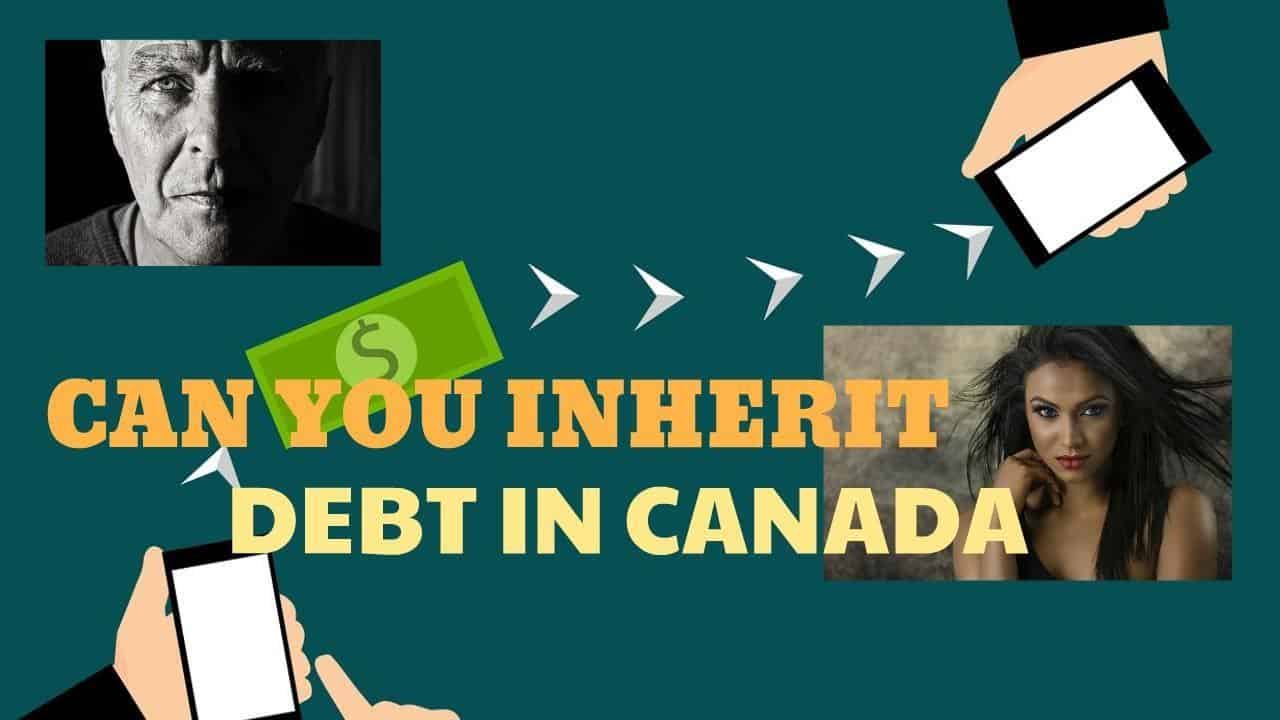We hope that you and your family are safe, healthy and secure during this COVID-19 pandemic.
Ira Smith Trustee & Receiver Inc. is absolutely operational and Ira, in addition to Brandon Smith, is readily available for a telephone consultation or video meeting. Through the use of video meetings, we can help you even if you do not live close to our office in the Jane Street Hwy. 7 area. It is just like we are coming to you!
The bankruptcy trustee in Vaughan: We transformed into a licensed insolvency trustee Vaughan
The bankruptcy trustee in Vaughan went through a metamorphosis similar to a caterpillar becoming a butterfly. The term “bankruptcy trustee” turned into a “licensed insolvency trustee“. The licensed insolvency trustee designation was mandated to all licensed trustees by the Industry Canada Office of the Superintendent of Bankruptcy (OSB). The OSB licenses and supervises the activities of all licensed insolvency trustees across Canada. This includes us as a licensed insolvency trustee Vaughan, Ontario.
The purpose of this Brandon blog is to offer an overview of our role in the Greater Toronto Area with our licensed insolvency trustee Vaughan insolvency trustee firm head office.
The purpose of this Brandon blog is to offer an overview of our role in the Greater Toronto Area with our licensed insolvency trustee Vaughan insolvency trustee firm head office.
Role of a Licensed Insolvency Trustee Vaughan (formerly called Trustee in Bankruptcy Vaughan)
A licensed insolvency trustee Vaughan can fulfill various roles. It all starts with providing a no-cost consultation for a person or company that finds themselves in a troubling financial situation that worries them about their prospects for a bright financial future.
Due to the various roles, a licensed insolvency trustee Vaughan can play, we are also known as “receivers”, “trustee in bankruptcy” or “financial restructuring professionals”. We are appointed when a company or person is financially distressed and either has no other options to get out of financial difficulty and is unable to pay its bills. A licensed insolvency trustee is the only party licensed by the Government of Canada to perform a federal government-approved debt settlement plan, being a consumer proposal consolidation.
As a licensed insolvency trustee Vaughan firm, there are different roles we can play.

Find the right option with the help of a Licensed Insolvency Trustee Vaughan
Personal situation insolvency
For individuals who are insolvent, we can provide and act in the following:
- A no-cost initial consultation to provide advice about debt relief.
- Credit counselling. to help with your household budget and determine if you really need one of the available debt relief options.
- Consumer Proposal – Toronto and GTA – Act as Consumer Proposal Administrator to conduct a Consumer Proposal Process for people who owe $250,000 or less in unsecured debts (not including any debts registered against their home) who wish to eliminate their debt and wish an alternative to bankruptcy so that they can avoid filing bankruptcy. This is a government-approved interest-free debt settlement plan that can be paid over as much as five years.
- Division I Proposal – Toronto and GTA – This process is not quite as streamlined as a consumer proposal, but it is for people who wish to eliminate their debt while avoiding personal bankruptcy.
- These 2 proposal remedies are the only accredited government debt relief programs in Canada.
- Personal bankruptcy – Toronto and GTA – As a licensed insolvency trustee Vaughan, we can of course assist anyone who wishes filing for bankruptcy. In your no-cost consultation with us, we first get to know you and your financial situation in order to determine if you qualify for one of the bankruptcy alternatives. If not, we will discuss the entire bankruptcy process with you, including the cost of bankruptcy. If you wish to proceed, we will accept your assignment in bankruptcy.
All collection activities against you cease when you make an assignment in bankruptcy, or file a debt settlement restructuring proposal. Legal action against you may include wage garnishment, collection calls, or a legal action against you. You get legal protection as a result of the stay of proceedings afforded by an insolvency filing.
The two most common types of debt we encounter in our personal insolvency practice are credit card debt and income tax debt. We have successfully handled for clients serious negotiations with Canada Revenue Agency in order to achieve debt settlement for people with a financial history of income tax debt.
Corporate insolvency
For companies, and especially entrepreneurial family businesses that are insolvent, we can provide and act in the following:
- A no-cost initial consultation to provide advice about debt restructuring options.
- Restructuring & Turnarounds.
- Business analysis, business review and monitoring.
- Receivership – Toronto and GTA – Only a licensed insolvency trustee can act as a receiver on behalf of a secured creditor. As a licensed insolvency trustee Vaughan, we act as a privately-appointed receiver on behalf of a secured creditor. We also act as a court-appointed receiver upon the application to a court by a secured creditor or other stakeholders.
- Winding-Up and Liquidator – Toronto and GTA – For solvent companies that wish to wind up operations through a legal process, we act as either privately appointed or court-appointed Liquidator.
Selecting The Right Licensed Insolvency Trustee in Vaughan
Experience and professionalism
You might not find the expertise to solve your financial difficulties with someone just around the corner. You can start your search for the right Trustee by visiting the website of the Canadian Association of Insolvency and Restructuring Professionals. Both Ira Smith and Brandon Smith are members of the Canadian Insolvency and Restructuring Professional Association. It shows an individual’s commitment to staying up to date with all the latest industry advancements by belonging to this organization. Check the website of the OSB to ensure that the Trustees you are considering are not suspended or under file management by the regulator.
Interacting with them on many levels is essential
As a beginning, they must be able to quickly understand your needs and desires, as well as provide you with a realistic plan that can be followed. If you have issues or concerns, they also need to be available to you. Look for their interest in you. How enthusiastic are they about their industry? Do you really feel their compassion for you? Do you feel you are going to get along on an inter-personal basis with this person?
That’s exactly how you measure enthusiasm. The most effective solutions and suggestions will be offered by a knowledgeable insolvency trustee. You may not find this type of person within walking distance of your home or workplace.

Licensed insolvency trustee Vaughan: Are you able to agree on the same concepts?
It is not a totally free service to engage a professional trustee. The complexity of your situation could affect the bankruptcy cost. Your trust in a bankruptcy trustee is diminished if you feel they view you as just another dollar sign. Look for those who seem to have similar values to you. It may not be the closest to your home to find such a licensed insolvency trustee.
Websites for licensed insolvency trustee Vaughan
Searching for “bankruptcy trustee near me” or “licensed insolvency trustee Vaughan” on a search engine today will bring up various websites to visit. How does the website make you feel? What bankruptcy FAQs do they provide? Can you see pictures of the people you would deal with? From their blog, do they demonstrate that they have a deep knowledge base?

You can meet with more than one Trustee
Unless you sit across the table from him or her, you won’t know which one is the right fit for you. Comparing two bankruptcy trustees is a good idea. You want to be able to compare two or more for your own validation purposes. The one you feel best about is the one to go with. Trust your gut!
3 Best Licensed Insolvency Trustees in Vaughan, ON
Throughout the years my firm has been inspected for 50 points, including reviews, ratings, reputation, history, complaints, satisfaction, trust, cost, and general excellence. The results have allowed us to rank consistently among the top 3 Best Licensed Insolvency Trustees in Vaughan, ON.
Licensed insolvency trustee Vaughan summary
I hope that you found this licensed insolvency trustee Vaughan Brandon Blog helpful in describing our role as debt professionals and my thoughts on how to go about choosing the one you think is the best fit for anyone in a financial crisis. Problems will arise when you are cash-starved and in debt. There are several insolvency processes available to a person or company with too much debt.
If you are concerned because you or your business are dealing with substantial debt challenges, you need debt help and you assume bankruptcy is your only option, call me.
It is not your fault that you remain in this way. You have actually been only shown the old ways to try to deal with financial issues. These old ways do not work anymore.
The Ira Smith Team utilizes new modern-day ways to get you out of your debt difficulties with debt relief options as alternatives to bankruptcy. We can get you the relief you need and so deserve. Our professional advice will create for you a personalized debt-free plan for you or your company during our no-cost initial consultation.
The tension put upon you is big. We know your discomfort factors. We will check out your entire situation and design a new approach that is as unique as you and your problems; financial and emotional. We will take the weight off of your shoulders and blow away the dark cloud hanging over you. We will design a debt settlement strategy for you. We know that we can help you now.
We understand that people with credit cards maxed out and businesses facing financial issues need a realistic lifeline. There is no “one solution fits all” method with the Ira Smith Team. Not everyone has to file bankruptcy in Canada. The majority of our clients never do as we know the alternatives to bankruptcy. We help many people and companies stay clear of filing an assignment in bankruptcy.
That is why we can establish a new restructuring procedure for paying down debt that will be built just for you. It will be as one-of-a-kind as the economic issues and discomfort you are encountering. If any one of these seems familiar to you and you are serious about getting the solution you need to become debt-free, contact the Ira Smith Trustee & Receiver Inc. group today.
Call us now for a no-cost consultation.
We hope that you and your family are safe, healthy and secure during this COVID-19 pandemic.
Ira Smith Trustee & Receiver Inc. is absolutely operational and Ira, in addition to Brandon Smith, is readily available for a telephone consultation or video meeting.




